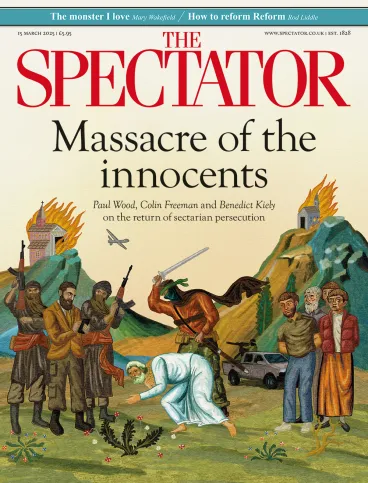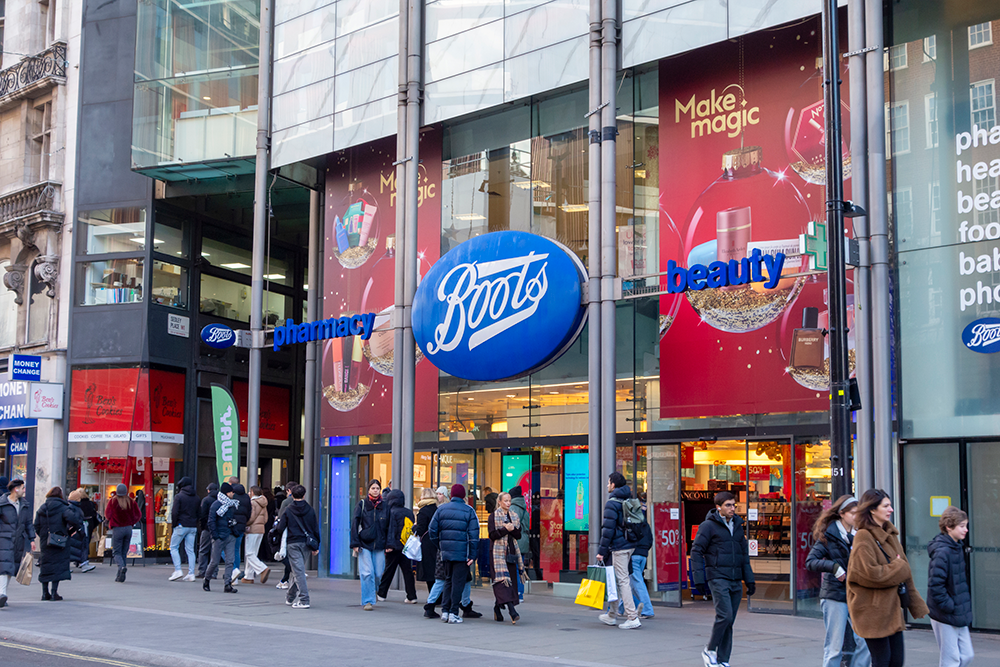
‘Don’t stress over short-term stock market swings’ is a maxim on which Donald Trump and I might agree, even if he is keen to take credit for upward rallies. The shakedown of the past few days is a natural reaction to the wild six-week ride of Trump’s tariff and foreign policy gambits and the realisation that if he keeps it up, he’s far more likely to harm the US economy than boost it.
But with a mad king surrounded by madder courtiers anything can happen, including ever more eccentric reversals. So watch the White House tragicomedy but don’t get hung up on the Dow Jones index.
But having said that, there’s one stock whose descent is more significant than others. Tesla, Elon Musk’s electric vehicle company, has lost more than half its value since December. Its underlying car business, a true pioneer in the previous decade, has been declining in the face of Chinese competition and for lack of new models; but Musk has kept the valuation sky-high largely through social media hype about driverless ‘robo-taxis’ that have yet to come into production.
Now those who dislike Musk’s federal job-slashing at Trump’s right-hand talk of boycotting Tesla, while those who still think he’s a genius worry he’s too distracted by power. And analysts point out that at a market capitalisation of $700 billion (on Monday, that is), Tesla was still worth more than the rest of the US auto industry combined and still trading on a forward price-to-earnings ratio that’s a multiple of any of its competitors – including BYD, the Chinese manufacturer which has surpassed it as the world’s biggest EV seller.
In short, Tesla’s share price is one of the biggest hot-air balloons in the history of stock markets – and Musk’s current prominence is based not on statesmanlike wisdom but very largely on America’s (and more specifically Trump’s) fascination with his multibillion fortune, which is a simple function of that share price. Of course he could not have got there without being a mercurially brilliant engineer and investor in his earlier career; but on the platform of global affairs he’s wrongheaded, misanthropic and extremely dangerous. If his name fades as Tesla falters, the world will be a safer place.
Boots on the ground
W.H. Smith may be about to disappear from the high street, leaving its historic name attached only to airport, station and hospital kiosks. If it does, I suspect consumers will barely notice: the habit of daily newspaper-buying is all but dead and better sandwiches can be had from a dozen competing chains. Boots, on the other hand, is an element of the social fabric we really wouldn’t want to lose.
Having survived a 20-year pass-the-parcel succession of ownership changes, the chain of 2,000 pharmacies and opticians that traces its origins to John Boot’s Nottingham shop in 1849 is likely to be sold again – this time by Sycamore Partners, a private equity outfit that’s acquiring the listed US parent Walgreen Boots Alliance. Who might bid for Boots this time round?
The Issa brothers of Asda were interested last time but have gone separate ways; and it’s probably too big a bite for the retail buccaneer Mike Ashley. Optimists foresee a possible re-listing on the London stock exchange – but whatever happens, as I’ve written before, I believe most British shoppers would prefer this ‘hygienic and convenient’ high-street stalwart to remain exactly where it is, doing what it does best.
Lofty thoughts
To Oxford to see a friend collect his doctorate in the Sheldonian Theatre, the university’s ceremonial venue since 1669. Reassuringly in a world of change, the proceedings are entirely in Latin – but also rather repetitive, so my attention strays to the ceiling fresco by Charles II’s court painter Robert Streater depicting ‘the Triumph of the Arts and Sciences over Envy, Rapine and Ignorance’. And I’m thinking: how’s that going?
Rapine (violent seizure of others’ property) and ignorance represent a fair summary of Vladimir Putin and Trump. Envy dominates Labour’s education and inheritance policies. Today’s dark prince of digital science, as discussed above, is Musk. And the arts have yet to find a voice of satire or protest against the new fascism: at another recent ceremony steeped in ancient tradition, the Oscars, there was barely an anti-Trump joke to be heard. As the pro-vice-chancellor doffed his cap for the last time, I thought, oh to be the sword-bearer of Truth on a 17th-century ceiling.
Creaking door
Another Oxford friend, just back from studying Japan’s insurance-based state health service, tells me it delivers two and a half times more care per citizen than the NHS (measured by appointments, medications and operations) for around four-fifths of the cost, ‘and I couldn’t find a waiting list anywhere’. ‘Whitehall must be all over you, clamouring to know how it’s done,’ I said. ‘Nope, I can’t find anyone who’ll listen.’
But here’s the good news: from October, patients in England will be entitled to fix GP appointments online, rather than joining the ‘8 a.m. scramble’ to book by phone. Hailed by Health Secretary Wes Streeting as ‘the first step to fixing the front door to the NHS’, this bold innovation comes all of 25 years after online booking first became available for UK restaurants through a site called
Toptable, now part of Opentable, which seats a billion diners per year worldwide.
OK, restaurant software might need minor tweaks for medical use – but you get my point about creaking NHS systems creating excessive costs and delays. Meanwhile, regular readers may be more interested to know where I’ve been booking value-for-money tables myself in these grim days. My top tip for March is the £29.50 three-course Lyonnaise lunch at Josephine Bouchon in London’s Fulham Road. And I’ve been upping my anti-Trump street cred by boycotting McDonald’s.








Comments